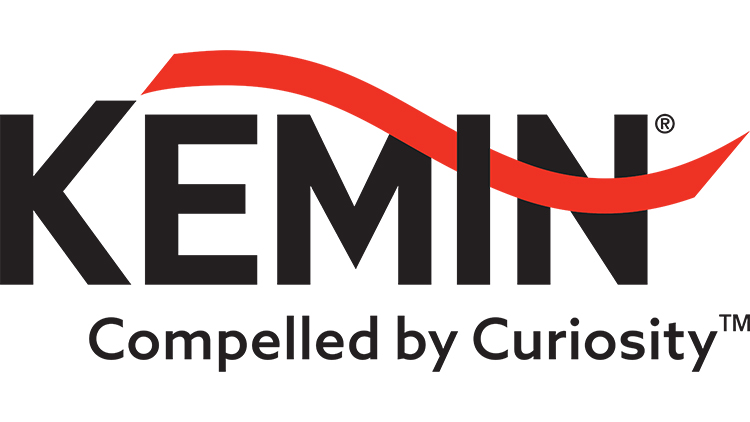Promotional Features
How an algae beta glucan postbiotic can unlock immune health
Postbiotics is the latest buzzword in the world of health and wellness, emerging as the ultimate gamechanger when it comes to ‘supercharging’ the immune system.
But what exactly are postbiotics? According to the latest consensus from the International Scientific Association for Probiotics and Prebiotics (ISAPP), a postbiotic is “a preparation of inanimate microorganisms and/or their components that confers a health benefit on the host”.1 Among the microorganisms, microalgae and their components such as beta 1,3 glucans are gaining attention in relation to their ability to support and strengthen the host’s immune defences.
The human immune system is a complex network that works together to protect the body from harmful threats. However, modern lifestyles, characterized by stress and unhealthy habits such as poor diet and lack of exercise, can leave our bodies more vulnerable. As an example, the link between immune and stress systems has been extensively studied, as well as the impact of intense exercise.2,3
The importance of a healthy immune system is at the top of Asia-Pacific consumers’ minds. A 2022 report from FMCG Gurus stated that seven in 10 Asia-Pacific consumers want to address their immune health in the next twelve months. Further, when asked how they measure immune health, the top two answers were recovery from illness and long-term health.4
Multifunctional and clinically proven benefits are two aspects consumers are looking for when seeking immune products. Consumers recognize that immunity interplays with multiple systems and directly impacts overall health. Digestive health and daily energy levels are the top two areas consumers expect to enhance by improving their immune health.4
The benefits of algae beta 1,3 glucan postbiotic
The benefits of postbiotics for health can be mediated by several mechanisms which can act independently or in combination. Among the health-promoting effects, immunity benefits have remarkable importance. First and foremost, some postbiotics can strengthen the gut barrier, acting as a gatekeeper to prevent the entry of harmful substances traveling from the intestinal lumen to the “inside” of the body.1 This is crucial, as the gut is home to 70% of the body’simmune cells.5
Furthermore, postbiotics can modulate local and systemic immune responses by regulating the activity of immune cells, ensuring a balanced response. They can enhance the production of signalling molecules that prime or prepare vital immune cells to identify and neutralize foreign invaders, if needed.1
Beta 1,3 glucans are unique molecules when it comes to immune health. They can act as immunomodulators because the human body recognizes them as “non-self” substances, referred to as pathogen-associated molecular patterns (PAMPs). This happens through a specific set of receptors called pathogen recognition receptors (PRRs) which are present on the surface of innate immune cells, such as macrophages and dendritic cells.
Recognition and phagocytosis of beta-glucans facilitate activation of the innate immune system through a cascade of signalling pathways. These release both pro- and anti-inflammatory signalling molecules that prime immune cells, thereby strengthening the immune system.6,7
Furthermore, research performed with algae-sourced beta 1,3 glucans suggests that these molecules can not only interact with the cells of the innate immune system but can also indirectly support immune health by strengthening the intestinal barrier.7-9
BetaViaTM — a natural immune-strengthening postbiotic sourced from proprietary algae (Euglena gracilis) – is a natural fit for a new generation of year-round immune and gut formulas targeting Asia-Pacific consumers’ needs.
Its postbiotic mechanism relies on a triple-action protection mechanism support by Kemin’s pre-clinical and clinical research:10-14
1. Priming key immune cells The preponderance of science along with Kemin’s preclinical studies on BetaVia show that beta 1,3 glucans reach the small intestine undigested and are recognized by innate immune cells. This recognition primes and recruits immune cells, leading to both local and whole-body immune benefits. Clinical research conducted in healthy subjects has shown that BetaVia administration reduces symptoms of upper respiratory tract infections.
2. Protecting intestinal barrier integrity Kemin’s research shows that BetaVia promotes a healthy immune-gut balance. BetaVia supports the health and function of the intestinal barrier which plays an essential role in modulating the interaction between the body and the environment, acting as a gatekeeper on what stays “in” and “out” of the body.
Impairment of the intestinal barrier can lead to the intestinal gates (tight junctions) becoming more permeable, allowing food particles, bacteria and toxins to enter our bodies, consequently impacting our health. Recent clinical results showed that BetaVia can modulate a key biomarker of intestinal barrier health called zonulin, suggesting that BetaVia supports immune health by supporting intestinal barrier function and promoting gastrointestinal comfort.
3. Shaping the microbiome Both preclinical and clinical research suggests that BetaVia can positively impact the gut microbiota. The gut houses most of the body’s immune cells; therefore, it is not surprising that BetaVia can shape the gut microbiome through direct interaction with gut bacteria as well as through priming immunity and supporting the integrity of the intestinal lining.
Unlock the potential of algae beta 1,3 glucans postbiotic with BetaVia™. With scientifically studied immune and gut health benefits, BetaVia™ is the transformative choice for your next immune formula.
References
1. Salminen, S.; Collado, M.C.; Endo, A.; et al. (2021). The International Scientific Association of Probiotics and Prebiotics (ISAPP) Consensus Statement on the Definition and Scope of Postbiotics. Nature Reviews Gastroenterol & Hepatol. 18, 649–667.
2. Poller, W.C.; Downey, J.; Mooslechner, A.A.; et al. (2022). Brain Motor and Fear Circuits Regulate Leukocytes During Acute Stress. Nature. 607, 578–584.
3. Gleeson, M. (2013). Effects of Exercise on Innate Immune Function. Exerc. Immunol. 28, 106–125.
4. FMCG Gurus. Consumer Perceptions on Immunity Asia Pacific Regional Report 2022.
5. Vighi, G.; Marcucci, F.; Sensi, L.; et al. (2008). Allergy and the Gastrointestinal System. Clinical and Experimental Immunology. 153, 3–6. - https://onlinelibrary.wiley.com/doi/10.1111/j.1365-2249.2008.03713.x
6. Goodridge, H.; Wolf, A.J.; Underhill, D.M. (2009). Beta-Glucan Recognition by the Innate Immune System. Immunol Rev. 230, 38–50.
7. Nakashima, A.; Yamada, K.; Iwata, O.; et al. (2018). β-Glucan in Foods and Its Physiological Functions. Journal of nutritional science and vitaminology. 64, 8–17.
8. Kim, K.; Ehrlich, A.; Perng, V.; et al. (2019). Algae-Derived β-Glucan Enhanced Gut Health and Immune Responses of Weaned Pigs Experimentally Infected with a Pathogenic E. Coli. Animal Feed Science and Technology. 248, 114–125.
9. Umei, M.; Akazawa, H.; Saga-Kamo, A.; et al. (2021). Oral Administration of Euglena Gracilis Z Alleviates Constipation and Cardiac Dysfunction in a Mouse Model of Isoproterenol-Induced Heart Failure. Circulation Reports. 4, 83–91.
10. Evans, M.; Falcone, P.H.; Crowley, D.C.; et al. (2019). Effect of a Euglena Gracilis Fermentate on Immune Function in Healthy, Active Adults: A Randomized, Double-Blind, Placebo-Controlled Trial. Nutrients. 11, 2926.
11. Kemin Technical Literature Characteristics and Prebiotic-like Properties of BetaVia Complete. KHTL-017-149.
12. Kemin Technical Literature BetaVia Complete Supports Gut Health after Induced Colitis in Mice. KHTL-017-159.
13. Kemin Technical Literature BetaVia Complete Can Prime Key Cells in the Innate Immune System. KHTL-017-150.
14. Kemin Proprietary Data TD-20-6867 Effect of a Euglena Gracilis (1,3 β-Glucan) on Gut and Immune Health in Healthy Adults with Mild Gastrointestinal Issues.





